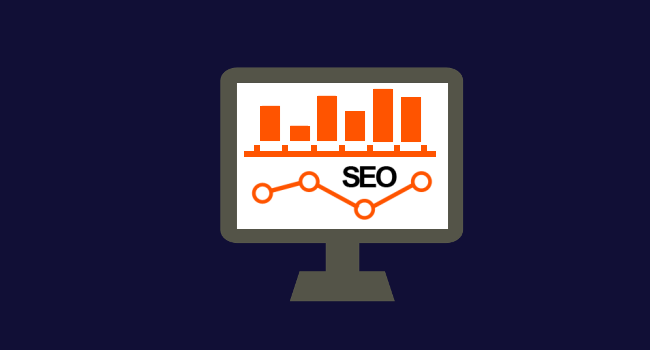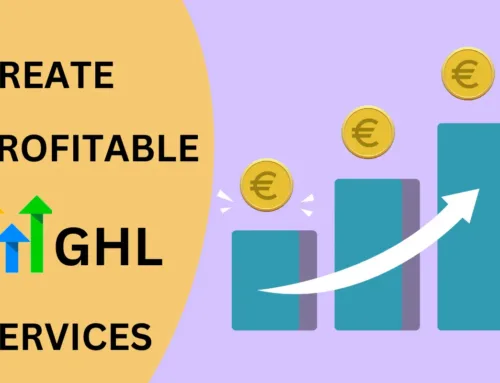Improving the performance of a website on all the major search engines is undoubtedly crucial to generating quality leads and traffic. But, how can that be achieved? Well, the answer to that is a good SEO. An excellent Search Engine Optimization is essential in today’s times and would boost your online visibility while also enhancing your Return on Investment. When you carry out a comprehensive SEO audit evaluation of your WordPress site, you would be able to identify the areas that might be the main cause of the trouble. This way you would also be able to keep your site updated with the current technological developments.
Now, that you know that SEO is important, when was the last time you had evaluated its performance? In this guide, you would come across the various tips and tools that would help you to conduct the WordPress SEO Audit on your own. By assessing some of the most crucial factors, you would be able to find out all the drawbacks and then correct them so as to ensure that your site is performing its best.
Let’s look into all the steps of your SEO WordPress Audit.
Determining the Purpose and Timing of the SEO WordPress Audit
The very first step is to determine the purpose of the audit. Ask a few questions to yourself like – how is my site’s overall speed performance? Do I need to opt for a new WordPress hosting provider? Is my site’s URL search engine friendly? Once you get the answers to all these questions, you would be able to determine the purpose of your audit. You would also need to ask yourself as to how often you audit your site. Just so you know, auditing on regular intervals is extremely essential and you need to ensure that your site is being audited from time-to-time. This would enable your site to deliver its best performance.
Selection of the Audit Tool
Now, that the purpose is determined, you would need to choose a few useful third-party tools. Each tool has its own functionality and you would need to pick the one which you feel would be best for auditing your site. A few of the most popular auditing tools are Screaming Frog, SpyFu, Google Webmaster Tools, Google Analytics, Moz Crawl Test etc. Choose your tools wisely depending on the purpose.
Website Speed Check
If your site takes forever to load, there’s is a high chance that the users won’t wait for it. This means that you are losing visitors that might be your potential customers and this, in turn, would take a hit on your revenue. If your site doesn’t load within an instant, users would look for similar products and services elsewhere. Therefore, you need to look into that. You could optimize images, reduce the HTTP requests, make use of CDN etc. All of these are known ways to improve the site’s loading speed.
Mobile Website Check
You must be aware of the fact that there are more number of people these days that access the internet through their Smartphone. Google, in fact, considers this as a strong ranking factor. If your site isn’t optimized for the mobile users, there’s a high chance that users would get frustrated and look somewhere else. Hence, you need to ensure that your site is mobile friendly. There are a lot of free tools and plugins that can help you with this.
Keyword Analysis
The keyword analysis would evaluate as to how you and your competitors appear in the search engine rankings. To ensure that you rank on the top, you would need to identify the keywords that your competitor is using, with tools like SEMRush and SpyFu. You would be required to assess your position as compared to that of your competitor.
Keyword cannibalization (two different pages ranking for the same keyword) must also be avoided as this can confuse Google and force it to decide which page would be best for the search query. You would also need to identify the keywords that you wish to rank for. This would ensure that your site ranks on the top in the search engine results.
Issues Related to Redirects and Errors
Redirects can often hurt a site’s SEO performance. The most common types of redirect issues are – redirect chains, 302 redirects, non-secured domain’s version not 301ing to secured version and non-preferred domain’s version not 301ing to preferred. Identify these issues and correct the errors. If not, the visitors would be left frustrated and you would lose potential customers.
Broken Links Check
The internal links within your content are supposed to be clear. However, finding ineffective or broken links isn’t an easy task. You would have to scroll through each and every page to identify and fix them. This is perhaps one of the most time-consuming SEO changes that you would come across. But, there are several tools and plugins that you can use to speed up the process. Understand the fact that broken links are annoying and can have a negative impact on your site.
Site Indexing
Your WordPress site would only get traffic if the pages have been appropriately indexed in Google. This is why it is a wise idea to ensure that your whole site is being indexed well. Sitemaps, for instance, are essential as they help with the indexing. Robots.txt is also something that you would have to look into.
Linking
You would need to analyze both the internal and external links relating to your WordPress site. In Google Search Console, identify the external links to your site, most linked content, the anchor text of how your data is linked under the “Search Traffic” -> “Internal Links.” Once you do so, you would be able to determine if your top linked pages coordinate with the top organic pages, what content is getting most links from external sites and for what reason and many such things. By comprehending all these, you would be able to make the necessary changes.
Navigation and User Experience
The site’s navigation has a great impact on the user experience. Most of the WordPress site owners tend to overuse categories and tags. This makes the things a bit more complicated and the users feel confused. The website has to be intuitive and the content has to be organized in such a way that the navigation is easy. This way the users would be able to find what they are looking for and this would ensure that the users have a great experience on your site.
In a nutshell:
Performing a successful SEO Audit of WordPress depends on how well you consider the above-mentioned factors. This is true for both local seo campaigns and national seo campaigns. By the time your audit is finished, you would be left with quite a few numbers of things that need to be done. Categorize all of these into priorities and then make it a point to address all of them. With the audit, you would be able to identify the areas that need to be worked on. This way the site would be able to rank better in the search engine results and would also be updated according to the latest trends, bringing the most efficient results to your site.
Did you succeed in performing an SEO audit of your site on your own? If yes, do share your experience with us.









